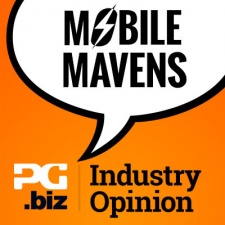Microsoft’s acquisition of Activision Blizzard was a long and drawn-out process, dating back to January of 2022 and finally closing one month ago. The deal met numerous hurdles due to concerns of a monopoly being created as Microsoft would own the rights to huge IPs such as Call of Duty and mobile talent such as King. Then, there were the CMA’s issues with the future prospects for cloud gaming.
Despite these mighty speed bumps, Microsoft was able to see the deal through and close the biggest gaming acquisition of all time. Now, with the dust now settled, the rumoured upheavals as yet unfounded and the end of the world nowhere in sight, is the deal as harmless and peaceful as the last month would have us believe?
28 days later, we ask our resident hive mind of industry experts what will happen next? Plain sailing from here or is the naysayer's apocalypse about to strike?
When this deal, which at one point seemed like it might fall through due to regulatory hurdles, finally got the green light from the British Competition and Markets Authority, talk about a game-changing moment in tech history!
Let's talk about pennies: We're looking at a jaw-dropping $69 billion, making this the biggest tech deal since AOL snagged Time Warner back in the day. Remember that?
But here's the interesting bit: Microsoft had to make some serious promises to seal the deal. They've sworn not to block Activision games from appearing on rival consoles. That's a big win for fair competition in the gaming world. Plus, they're handing over cloud streaming rights for all of Activision Blizzard King's games to Ubisoft Entertainment. It's a move that ensures the playing field stays level in cloud gaming, a super promising frontier in the industry.
But Microsoft's not just after the console crowd. They've got their eye on the mobile gaming market too. With the acquisition of King, the brains behind Candy Crush, they're set to make a splash in a market projected to rake in over $122 billion in 2023.
And let's not forget about Xbox Game Pass. It's about to get a serious upgrade with a flood of new titles from Activision Blizzard King. This subscription service looks more enticing than ever, potentially swaying gamers towards monthly subscriptions over one-off game purchases, which makes ID@XBox all the more interesting!
Now, looking ahead, it's all about integration. How does Microsoft bring Activision Blizzard King into the fold? There are concerns about market dominance, but there's also massive potential for tech synergy and innovation. The big question is, can they keep things running smoothly across their three publishing divisions?
In a world where content is King, this acquisition brings Activision’s forever franchises to Microsoft’s already substantial portfolio and expansive network of players across multiple platforms. That is a recipe for success on paper and will put it ahead of its competitors in terms of scale in both IP and development team capabilities to create live service games for its subscription service. However, Microsoft faces challenges in integrating the new studios into its existing structure whilst still working through the same challenge following its acquisition of ZeniMax Media.
In addition, there will be pressure to maximise the mobile titles in its portfolio as it begins to leverage its new mobile gaming store and cloud gaming ambitions in 2024 to challenge both Google and Apple’s dominance. Only time will tell if it has taken on too much too quickly to truly deliver value on the deal long term for both its shareholders and gamers. But for the wider industry, many of whom were watching to see the response of the CMA and FTC, they have been effectively given the green light for increased M&A Activity as the race for content for subscription services heats up for the biggest games publishers and platform owners.
‘About time’ was my immediate reaction to the deal closing - it dragged on for a while, and I’m sure everyone involved was delighted that the deal finally went through. Was it worth it? Time will tell, but Microsoft doesn't employ stupid people, so they obviously hold a lot of strategic stock in their gaming future.
That said, $69 billion is a hell of a lot of cash - hard to visualise for us mere mortals. Put it this way: it’s enough to give $8.37 to every single human on the planet.
Only time will tell if this is good for the industry - which is a horribly glib, so I’ll try and offer a more philosophical answer. We work in an industry in which one of the biggest companies in the world has just bought one of our most famous names for an astronomical sum. Despite a difficult year in the sector with studios closing and redundancy rounds in the press seemingly every week, there is a macro growth trend that should, if economic history prevails, trickle down across the game industry. Maybe it’ll prompt more consolidation; maybe it will bring new and interesting investors to the table, maybe something entirely different - but what the games industry is doing is innovating - what it certainly isn’t doing is stagnating.
As much of the hoo-ha in the press speculated, the cloud gaming opportunities for Microsoft are clear. With Call of Duty and World of Warcraft as springboards, they will be hugely influential in how cloud technology shapes the future of digital gaming. I’m intrigued to see what happens to the likes of King - a substantial property in its own right and worth at least a few billion from the acquisition total. Will it act as a springboard for a Microsoft push into casual games? Will they sell it off to help pay the bills? Will some of the key people try an MBO and float it separately? Who knows!
Microsoft needed content and was willing to pay for it. When it was first announced, the deal immediately pressured Sony to follow suit, which it did with its acquisition of Bungie. And the gap in both companies’ balance sheets implies Microsoft should win any content acquisition war.
It will be interesting to see how Microsoft leverages the new IP and where it feels it can gain a first-mover advantage. Remember that much of the regulatory concern around Microsoft was explicitly centred around whether it was being anti-competitive with franchises like Call of Duty. I wonder how long this will last.
Going forward I expect to see Game Pass gain the fantastic Activision Blizzard content library and perhaps some exclusive DLC, while future titles coming out of the conglomerate will likely have Xbox-only sales windows and content. Significantly, King gives Microsoft an excellent foothold in mobile, a market it had only previously addressed through xCloud game streaming.
Games are made by people, and it's the specific set of people behind each title who provide the vision and perseverance required to deliver. Microsoft has a tendency to wait a good while before subsuming the culture of the studios it acquires - so I don't anticipate any form of friction on that front, - but I do expect business strategy shifts to take place immediately.
We can expect to see explorations of existing franchises into different platforms and delivery vehicles. This includes Gamepass, which is part of Microsoft’s content-first strategy for Xbox. It will also be interesting to see the result of the osmosis of King's expertise in the mobile design, operations, and monetisation space, something I think many people underestimate for this acquisition.
From an industry-level perspective, we rarely see an overall benefit from these sorts of acquisitions. There is now one less major competitor in the U.S. game publishing market. These giant publishers tend risk-averse design-by-committee development methodologies, which runs the possibility of stifling industry innovation.
On the positive side - these manoeuvres often result in team attrition, spawning new studios and innovative games developed with the expertise, pedigree, and production prowess gained from experience on large teams and titles.
The market dominance of Microsoft is worrying, particularly when platform exclusives make games less accessible to players. From an indie perspective, massive AAA marketing budgets may reduce exposure for non-Microsoft releases, so community building remains essential. On the flip side, it can be challenging for huge companies to keep innovating, which may encourage players who become tired of stale games and franchises to explore original and creative indie titles.
It's normal for industries to go through consolidation phases, and as long as their game portfolios remain profitable, I expect this trend to continue for some time. However, companies cannot indefinitely inflate their share prices by acquiring other game companies without showing that these acquisitions make financial sense.
I don't think this is the case for the Microsoft Activision Blizzard acquisition, but some other companies are starting to resemble Ponzi schemes.
Acquisitions like these are like the gaming Gods and Titans forging an alliance. For us, the scale is so immense that it is impossible to judge what the impact on the rest of the industry will be and will be for some time. Anyone who says differently must have a crystal ball.
With King now under the Microsoft banner, it will be interesting to see what this means for mobile and the mobile hardware market as Microsoft fights for a younger audience. This, as well as the rest of the portfolio, will have the potential for cross-promotion of IP - Candy Crush X Minecraft, anyone?
To be honest, here on the frontlines of the industry, we are in turbulent times. We’re seeing studio closures and mass layoffs globally, as well as platforms making questionable corporate decisions that have far bigger ramifications currently. In terms of this acquisition, we mere mortals will watch from afar and brace for the impact when it eventually comes.
Microsoft continues the tried and tested industry strategy of acquiring studios and publishers with a bagful of hard-hitting, consumer-ready IPs. With the ultimate endgame of bolstering value for its newfound portfolio of forever franchises while also fortifying shareholder confidence for healthy returns of the AAA game development cycle.
And herein lies what I personally see as the tallest mountain to climb for Microsoft; while such a strategy is indeed a tried and tested one, it grows increasingly likely to hit a hard, unforgiving ceiling. Regulatory and consumer battles aside, with such a vast portfolio of IPs, the entertainment phenomenon of "franchise fatigue" is now applicable to Microsoft more than even Marvel's continually shrinking superhero genre.
Given the recent regulatory blessing, Microsoft now acts as the newfound arbiter for the industry's most valuable intellectual property portfolio of gaming franchises, combining its existing IPs with those from ZeniMax and now Activision Blizzard. Curing the illness of franchise fatigue which plagues its entire newfound portfolio at such magnitudes of scale will be the most challenging diagnosis that Microsoft must administer to realise the true value of its recent acquisitions.





























